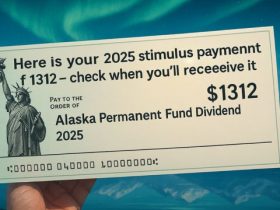The 2024 presidential campaign is igniting talk about new programs to assist Americans in purchasing a home, even though the first-time home buyer tax credit expired in 2010. This is because mortgage rates are still high.
During the March 7, 2024, State of the Union address, President Joe Biden urged Congress to approve a tax credit worth close to $10,000 for individuals purchasing their first homes.
“I want to provide an annual tax credit that will give Americans $400 a month for the next two years as mortgage rates come down, to put toward their mortgage when they buy a first home or trade up for a little more space,” Biden stated.
“The equivalent of reducing the mortgage rate by more than 1.5 percentage points for two years on the median home,” according to the White House, would be the credit.
Additionally, Biden wants to release the housing market from the grip of present homeowners holding onto their low-rate mortgages. He is advocating for legislation that would give middle-class families a tax credit of up to $10,000 for a year in the event that they sell their starter home for less than the county median.
The president has also proposed the following other initiatives:
- First-generation homebuyers “whose families haven’t benefited from the generational wealth building associated with homeownership” are eligible for a $25,000 down payment assistance grant.
- Removing title insurance for mortgages guaranteed by the federal government. According to the White House, homeowners would save $750 on average when refinancing their mortgages.
- Laws to promote the construction and remodeling of over two million dwellings in an effort “to close the housing supply gap.”
What’s the chance that the tax credits pass?
Democrats lack the necessary number of votes to get a bill through the Senate and the House without some degree of bipartisan backing. On a number of subjects, Republicans have also had trouble agreeing.
This presents a formidable obstacle for the advancement of affordable housing programs in the final months before a fiercely contested presidential election.
Prospective homeowners hoping to make the transition to homeownership should closely monitor changes.
What was the initial tax credit for first-time homebuyers?
Congress originally established the first-time home buyer tax credit in 2008, and it ran out in 2010; however, service personnel and some federal employees were eligible for the credit for an additional year.

It allowed a credit of up to 10% of the purchase price of a primary house, up to a maximum of $8,000, and provided a tax rebate on income taxes owed.
A first-time home buyer is defined by the IRS as someone who did not own a home during the three years prior to the purchase of the property for which the tax filer was requesting a tax credit.
Read Also: Missouri Targets Corporate Tax Elimination by 2028 with New Bill
State tax credits for first-time homebuyers
Since there isn’t a federal tax benefit at the moment, first-time homebuyers should look into potential state mortgage credit certificates. With MCCs, which are provided by state housing finance agencies, homeowners can claim a federal tax credit equal to up to $2,000 for the annual part of their mortgage interest payments.
10% to 50% of the annual mortgage interest paid on a residential house can be claimed as a tax credit. MCCs generally serve low- to moderate-income households and are subject to income limits and other restrictions set by a state housing finance agency.
A credit certificate that can be applied to the federal income tax due on the buyer’s tax return is sent to them once they are accepted.
State initiatives for first-time homebuyers
For qualified first-time home purchasers, several towns, counties, and states additionally offer grants, lower interest rates, and aid with a down payment.
You can locate these home-buying aid programs through the Department of Housing and Urban Development and state housing finance organizations. For programs in your area, you can also check the website of your local government.
These grants, loans, or down payment assistance programs may be subject to income constraints, geographic limitations, credit score requirements, and other limitations.
Read Also: Despite Rising Inflation, Why Minimum Wage and Tax Breaks Are Stuck
Other first-time house buyer loans
Loan programs designed specifically for first-time home buyers are frequently available. Lower down payments are among the most significant advantages.
- As little as 3% down payment is required for conventional loans.
- FHA-insured mortgages require as little as a 3.5% down payment.
- No down payment options are available for VA and USDA mortgages.
- The top mortgage lenders will also assist you in locating possible loans and other forms of support.











Leave a Reply